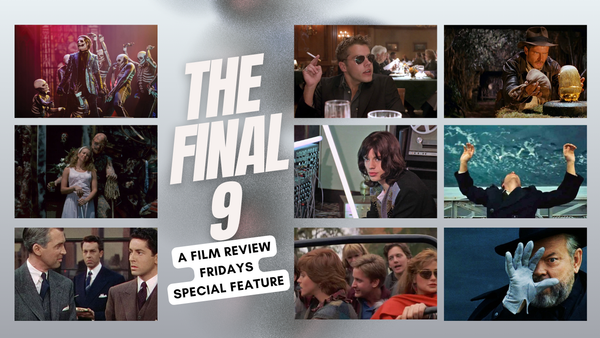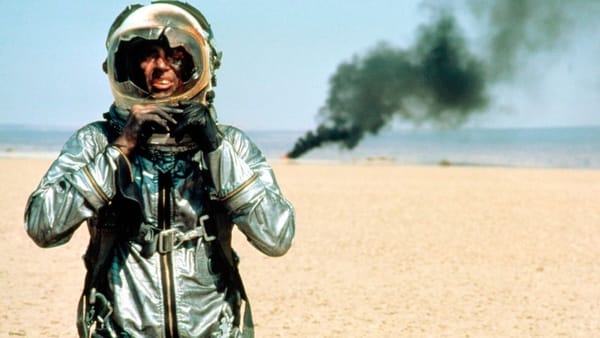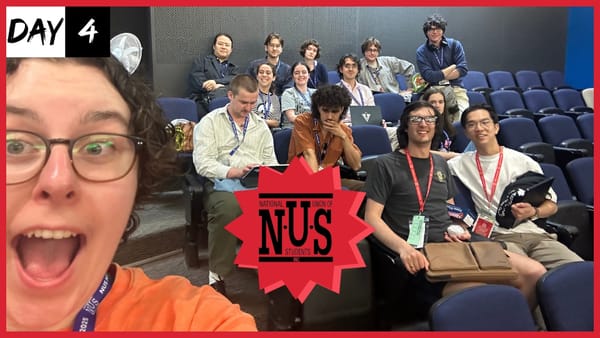"The Essence of Her" – Interview for the Julia Gillard play
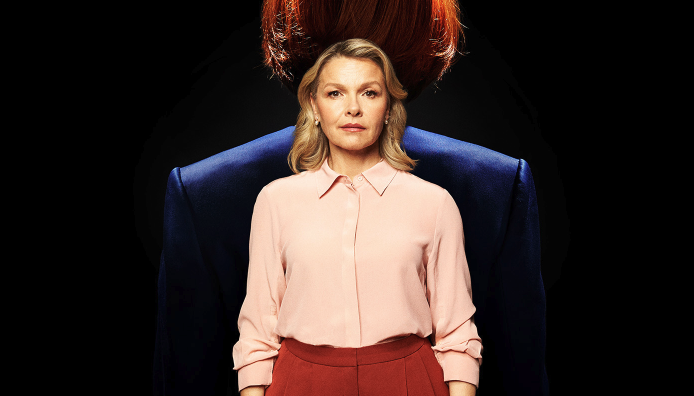
‘The power of her rhetoric, the improvisation of the words, the strength of her tone and manner, the calm at the centre of the storm – all of it was an incredible piece of theatre quite apart from the shift in attitudes it ushered in.’
Joanna Murray-Smith in On Cue
Julia is a show that reveals the truth about being a public figure, a satirised concept, and a badass feminist in the 21st-century. Joanna Murray-Smith, inspired by the inhumanity she and the world witnessed when it came to Prime Minister Julia Gillard in 2012, wrote Julia in an attempt to revive the public’s sympathetic attitude towards her.
Murray-Smith’s resuscitative show recently played at the IPAC in Wollongong and I got to interview her. Here’s what happened:
Start of interview
SERENA: Could you start with a brief outline of what the show is about?
JOANNA: Julia is the story of Julia Gillard from her perspective, as the most beguiling figure in recent times as prime minister – because she was the first woman, but also because of the horrendous antagonism she faced whilst she was leader, from the press and the Opposition.
She managed to pass more legislation than any other prime minister in history despite the hostility that she faced, and of course, her leadership culminated in the famous ‘Misogyny Speech’ which she gave in parliament and which was very improvised. She just got incredibly mad and she had suppressed her feelings of outrage and sexism and misogyny that she faced as Prime Minister. She sat on that and thought, ‘I’m never going to talk about sexism, because it’s always held against you.’ She finally just blew like a volcano and that speech came out perfect with no preparation – it was just this fantastically articulate statement about the national culture in 2012. The culture tolerated seeing a woman being torn to shreds really for no other reason than that she was a woman in power. And, I was interested in that story not just because the ‘Misogyny Speech’ became a very famous speech globally – apparently Barack Obama used to watch it over and over and over again just to see this rhetoric which was so brilliantly delivered – but because there’s very little insight into Julia Gillard’s own mind. Even her own autobiography tells you very little about who she really is, her personality, and the way she managed to survive that most brutal experience of being in power.
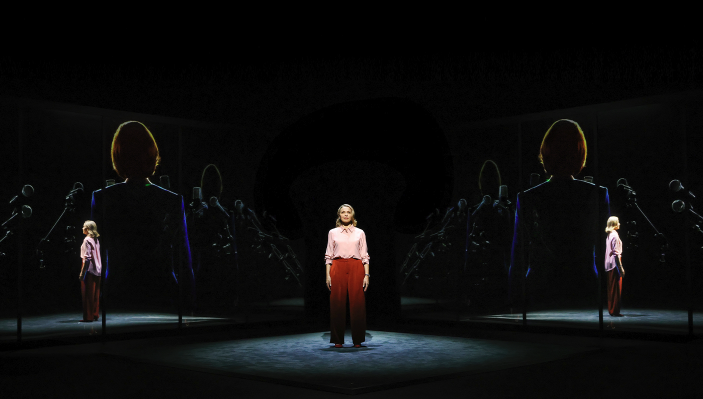
So, once I had determined that she was fine for me to speculate, she gave me quite a long interview of a couple hours. Once she gave me the go-ahead, it meant that I could imagine my way into her head. So, Julia is the product of that process – of imagining how she was feeling as she got up day after day to lead the country and taking the most ferocious hail of bullets from the media and the Opposition.
But also the cost of leadership: what it costs to be in that position of power and what you miss out on when you’re in the public service. Our public figures are for the most part inspired for good reason but what they lose for leading a life in public service is enormous – what they sacrifice. So, I wanted to talk about that as well, but rather than be a history lesson for younger generations – of course, I want the story of Julia to be told to younger generations – but I also want it to be a real entertainment.
I think Justine Clarke [who plays Julia] and the director Sarah Goodes, who I’ve worked with before, have created a piece of drama that is really funny at times and incredibly sad at times, and the audience reflects that. There’s a lot of laughs within the audience, but also a lot of tears. A lot of empathy for what she went through, but also a lot of shame that a lot of us didn’t stand up for her enough when she was a leader. The play gives us an opportunity to recognise what she went through and reform our response to that with an appropriate amount of outrage.
SERENA: I read that Julia Gillard hadn’t endorsed or read the play, but you just mentioned that you did meet with her, is that correct?
JOANNA: Yes. The first thing I did was ask for permission, and I said to her that I was happy not to write it if she didn’t want me to, because I felt like she’d been through enough. But, in the end she said that it was fine by her. I told her that obviously my version of Julia is going to be different to who Julia really is because it is my Julia. It doesn't matter how much research I do or how many people I talk to, it will still be a product of my imagination. And she was fine with that, and that really gave me the opportunity to flex my muscle as a creative writer. I eventually wore her down into letting me interview her, and after I had written my first draft and got a sense of what I needed to know more about,what I was most interested in, I then had a couple hours of talking to her. She was incredibly gracious and very undefensive, and perfectly happy to answer everything I asked her. And then, subsequently, she came to see the play on the last night in Adelaide.
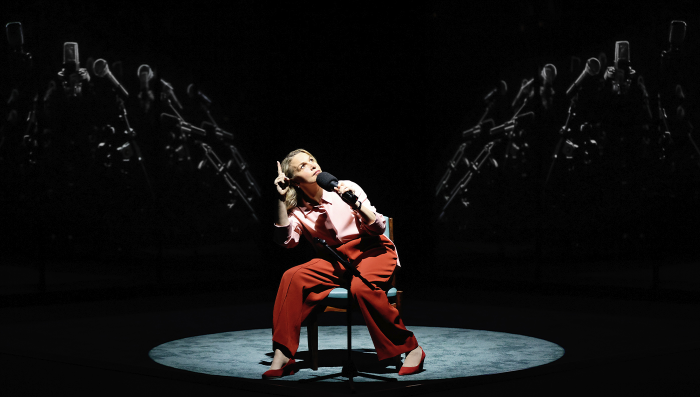
SERENA: That must’ve been such an amazing moment for you.
JOANNA: Such an amazing moment that she had just been embraced [by the audience]. The whole audience who had given Justine a standing ovation then turned around to Julia, who was sitting in the back row, and gave her a standing ovation as well. And then she came and spoke to the cast and crew at length and was very charming and gracious and delightful really. Which is pretty incredible, because it must be really confronting seeing a play written about you by someone who made it all up.
SERENA: Did Julia share her thoughts on the play afterwards?
JOANNA: Well, I wasn’t actually there, I was in Europe at the time, but I was in close communications with everyone who was there and they said that she was [very charming and gracious]. Since then I’ve heard from lots of people that are very close to her that she really liked the play. I haven’t heard from her directly. I think and hope that she recognises that the play is a tribute to her as a human, and that no one really allowed her to be recognised as a human being when she was PM. She was a figure of fun and of satire and she had comedy shows that were written about her. Surely, the first sitcom made about a prime minister anywhere in the world. She was satirised so brutally and never seen as a human being, so I hope she sees that Julia is trying to show the human being behind the leader. I’m quite sure that there are also some things that she found quite confronting – the play is not uncritical of her. For instance, her stand on refugees, her opposition to marriage equality, her reduction of the single women’s benefit, there were various things she did that were quite unpopular on the left. And, I don’t shy away from that. I felt the play had to be balanced.
SERENA: You’ve mentioned before that you fused together different theatrical styles to bring about this play. Was that part of your creative process in imagining your version of Julia?
JOANNA: Well, really most of that is to do with the director Sarah Goodes who I’ve worked with before, most significantly on a play called Switzerland that I adapted. But she’s also the director of The Talented Mr. Ripley at Sydney Theatre Company, which is in rehearsal at the moment. So, Sarah and I have worked together a lot, and what I know is that my skills are primarily text-based. Her skills are multifarious. She has many skills, but she has a particularly strong visual imagination. So, she can take wordy plays, like mine, which are very language-based, and she can really transform them so that they become three-dimensional stunning theatrical experiences for the audience. And I think that’s why we make such a good team.
SERENA: Is this play aimed for a particular audience, or is it open to all?
JOANNA: A lot of older women brought their granddaughters in particular and certainly a lot of others brought their daughters. I brought squadrons of my daughter’s friends – my daughter is 21 – and a lot of her friends came to see it. Yeah, I think a lot of young women are really thrilled at this story because it’s a story of triumph for women. Here is a world that was so oppositional to a woman in power and really tried to destroy her, and she just rises up like a phoenix and says, ‘You can’t destroy me, I won’t let you destroy me.’ So there’s something fundamentally inspiring about that, and also hopeful and optimistic about it that as women we can make a difference. We can make a difference to the national culture – what we tolerate – and we can change the standards, but in order to do so, we need to speak up. And that is exactly what her famous speech epitomises.
End of interview
In summary, by recommunicating, recreating and revitalising the story of Julia Gillard, Joanna Murray-Smith’s Julia brings the intense experiences of being a woman in politics into the limelight. In this love letter to Gillard, Murray-Smith demands respect for the first female Prime Minister of Australia that was not granted to her during her term or after.
For more information, visit: https://merrigong.com.au/wp-content/uploads/2025/06/2023_Ed_OnCue_Julia_FINAL.pdf
Photos from Sydney Theatre Company

